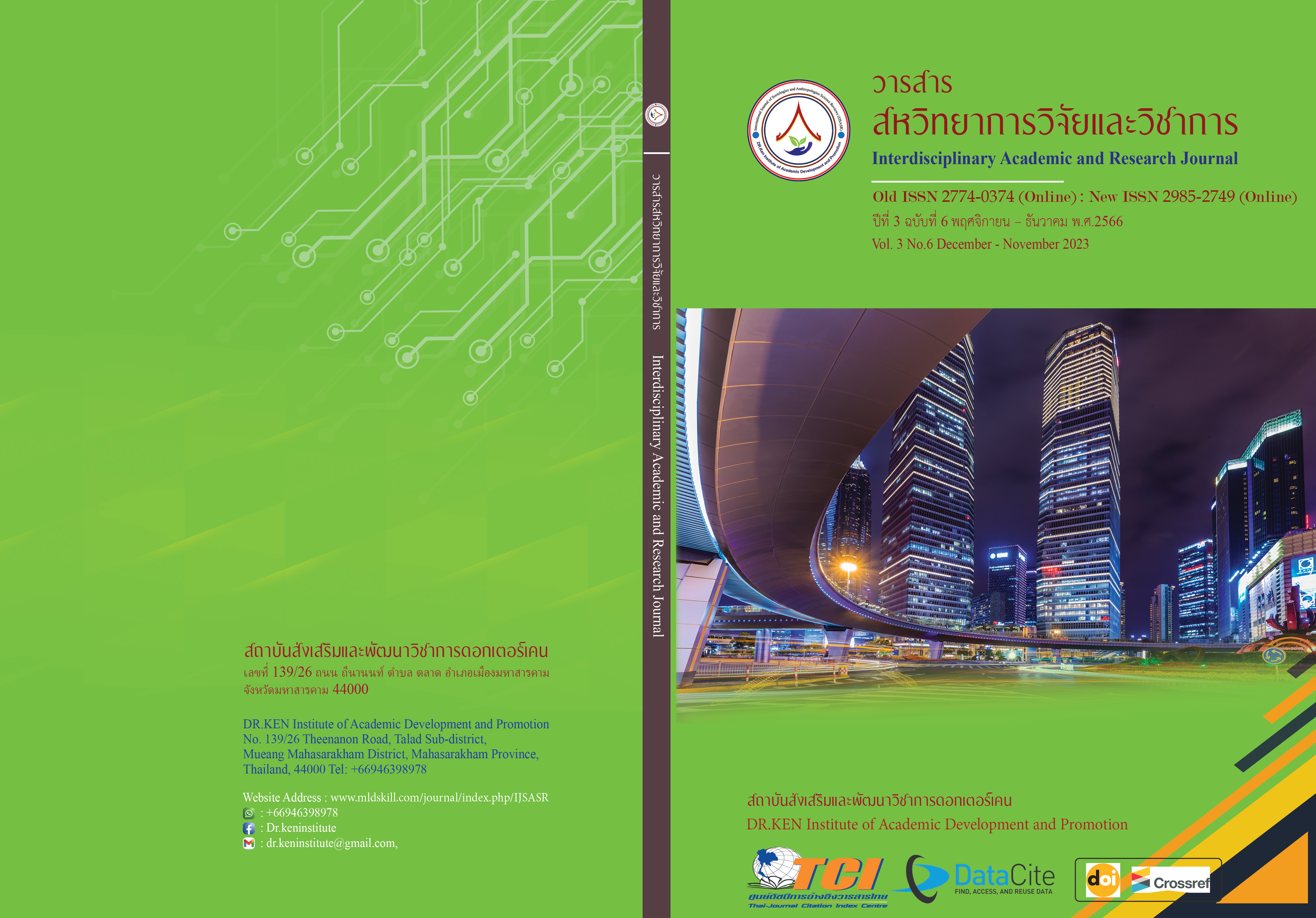The International Law on the Use of Force: A Case Study of Russia and Ukraine
DOI:
https://doi.org/10.60027/iarj.2023.271321Keywords:
Use of Force; , International Law; , Russia; , Ukraine; , UN Charter Article 2(4) and Article 51 and Charter 7Abstract
Background and Aims: The principle of prohibiting the use of force in international relations is enshrined in the United Nations Charter to require member states to refrain from the threat or use of force against each other. If such principles are violated or violated, the invaded state can use force to defend itself. The purpose of this article is to present and analyze whether the exercise of preemptive self-defense rights can be done by international law under Article 51. of the Charter of the United Nations. Russia's attack on Ukraine constitutes an international use of force prohibited by Article 2(4) of the Charter of the United Nations and does not fall within the exception to Russia's exercise of its right of self-defense or preemptive self-defense rights referred to in Article 51 of the Charter of the United Nations and is therefore unlawful under international law. From the consideration of Article, International Customary Law, International Court of Justice and International Lawyer Opinion.
Methodology: This study used document analysis and related research methods. Analyze the content and present it descriptively according to the study objectives.
Results: It found that the right to self-defense, which is an exception to the use of force under international law, does not include the right to preemptive self-defense for several reasons. (1) According to Article 51 of the Charter of the United Nations, an armed attack must occur before a state can have the right to self-defense. (2) There is no clear conclusion on the definition or definition of the right to preemptive self-defense under the provisions of Article 51 of the Charter of the United Nations at the time of drafting and negotiation. (3) Considering the different multilingual texts, the exercise of the right to preemptive self-defense of Article 51 cannot be done because it is contrary to the purposes and purposes of Article 2(4) of the Charter of the United Nations. (4) Based on customary international law the exercise of the right to self-defense exists only in the event of an attack that has already occurred. It does not include establishing rules to enable States to exercise their right to preemptive self-defense, and this preference is not guaranteed in the principles of customary international law. (5) To date, there has been no judgment of the International Court of Justice that directly addresses this issue. And (6) The opinion of most international lawyers is that states do not have the sole right to use force as a precautionary measure because it is a misinterpretation of exceptions to the point of undermining the principle prohibiting the use of force. In summary, Russia's use of military force against Ukraine violates both international law and Article 2(4) of the UN Charter and does not fall into exception Article 51 of Russia's right to self-defense and Charter 7.
Conclusion: Anticipatory self-defense in waste management is not recognized by international law, due to several reasons such as the limitations of the UN Charter, shortcomings in Article 51 considerations, and conflicts with principles of customary international law. The contradiction in the relationship between self-defense and the prohibition on the use of force in the United Nations Charter reflects the lack of clarity in the conclusions of international law.
References
กัญญา หิรัณย์วัฒนพงศ์. (2554). เอกสารประกอบคำบรรยายกฎหมายระหว่างประเทศแผนกคดีเมืองและคดีอาญา บทที่ 9 กฎหมายว่าด้วยสงครามและการใช้กำลัง. คณะนิติศาสตร์: มหาวิทยาลัยเชียงใหม่
จตุรงค์ ถิระวัฒน์. (2565). กฎหมายระหว่างประเทศ. พิมพ์ครั้งที่ 11. กรุงเทพฯ: วิญญูชน.
ธนภัทร ชาตินักรบ. (2562). เมื่อรัสเซียบุกยูเครน: การละเมิดหลักการห้ามใช้กำลังซึ่งผิดกฎหมายระหว่างระหว่างประเทศอย่างรุนแรง. Retrieved on August 24, 2023 From: https://thanapatofficial.wordpress.com/2022/02/24/ukraine-crisis-ep-2-russia-use-of-force-and-exception/?fbclid=IwAR3D5VS5Ho-ZHTCnILFSCPQ2hf2YpE6vZFApsGMDj9r7a-A6SHj7XarHo2I
ประสิทธิ์ เอกบุตร. (2538). หลักการห้ามใช้กําลังในความสัมพันธ์ระหว่างประเทศ. หนังสือวารสารวันรพีคณะนิติศาสตร์: มหาวิทยาลัยธรรมศาสตร์. 42-43.
ประสิทธิ์ เอกบุตร. (2529). 40 ปีสหประชาชาติ: สันติภาพกับการใช้กำลัง. วารสารนิติศาสตร์ มหาวิทยาลัยธรรมศาสตร์. 16 (1), 147-160.
ประสิทธิ์ เอกบุตร. (2554). กฎหมายระหว่างประเทศ เล่มที่ 2 รัฐ. พิมพ์ครั้งที่ 2. กรุงเทพฯ: วิญญูชน.
ประสิทธิ์ ปิวาวัฒนพานิช (2559).คำอธิบายกฎหมายระหว่างประเทศ. โครงการตำราและเอกสารประกอบการสอน คณะนิติศาสตร์: มหาวิทยาลัยธรรมศาสตร์
อริศรา ตั้งเทียมยา (2548). สิทธิป้องกันตนเองและปัญหาด้วยกฎหมายของการป้องกันตนเองล่วงหน้าภายใต้มาตรา 51 แห่งกฎบัตรสหประชาชาติ. วิทยานิพนธ์นิติศาสตร์มหาบัณฑิตบัณฑิต สาขาวิชานิติศาสตร์ : มหาวิทยาลัยธรรมศาสตร์.
อรุณ ภานุพงศ์. (2535).กฎหมายระหว่างประเทศกับปัญหาการใช้กำลัง หนังสือรวมบทความทางวิชาการเนื่องในโอกาสครบรอบ 80 ปี ศาสตราจารย์ไพโรจน์ ชัยงาม. คณะนิติศาสตร์: มหาวิทยาลัยธรรมศาสตร์.
International Court of Justice (I.C.J.) Report. (1948). The Corfu Channel Case (Albania v. UK) Judgment of 19 December. Retrieved on 24 August 2023 from: https://www.icj-cij.org/sites/default/files/case-related/1/001-19491215-JUD-01-00-EN.pdf
International Court of Justice. (1986). Case Concerning Military and Paramilitary Activities in and Against Nicaragua (Nicaragua V. United States of America), Judgment of 27 June. Retrieved on August 24, 2023 from:https://www.icj-cij.org/sites/default/files/case-related/70/070-19841126-JUD-01-00-EN.pdf
International Court of Justice. (2023) Allegation of Genocide under the Convention on the Prevention and Punishment of the Crime of Genocide (Ukraine v. Russian Federation), Request for The Indication of Provisional Measures Order, 78-86. Retrieved on 24 August 2023 from: https://www.icj-cij.org/public/files/case-related/182/182-20220316-ORD-01-00-EN.pdf
Kearly, T. (2003. Regulation of Preventive and Preemptive Force in the United Nations Charter: A Search for Original Intent. Wyoming Law Review, 3 (2), 633. Retrieved from: https://ssrn.com/abstract=1488859
Waxman, M.C. (2018). The Caroline Affair in the Evolving International Law of Self-Defense. Forcese, Irwin Law, https://scholarship.law.columbia.edu/faculty_scholarship/2507
PPTVonine. (2562). ด่วน! ปูตินประกาศ “รัสเซียเริ่มปฏิบัติการทางทหารในยูเครน” ชี้อาจต้องนองเลือด. Retrieved on August 24, 2023 From: https://www.pptvhd36.com/news/ต่างประเทศ/166945
Reports of International Arbitral Awards. (1933). Execution of German-Portuguese Arbitral Award of June 30th, 1930 (Germany v. Portugal). Retrieved on August 24, 2023, from: https://legal.un.org/riaa/cases/vol_III/1371-1386.pdf
Downloads
Published
How to Cite
Issue
Section
License
Copyright (c) 2023 Khettai Langkarpint

This work is licensed under a Creative Commons Attribution-NonCommercial-NoDerivatives 4.0 International License.
Copyright on any article in the Interdisciplinary Academic and Research Journal is retained by the author(s) under the under the Creative Commons Attribution-NonCommercial-NoDerivatives 4.0 International License. Permission to use text, content, images, etc. of publication. Any user to read, download, copy, distribute, print, search, or link to the full texts of articles, crawl them for indexing, pass them as data to software, or use them for any other lawful purpose. But do not use it for commercial use or with the intent to benefit any business.
















.png)


